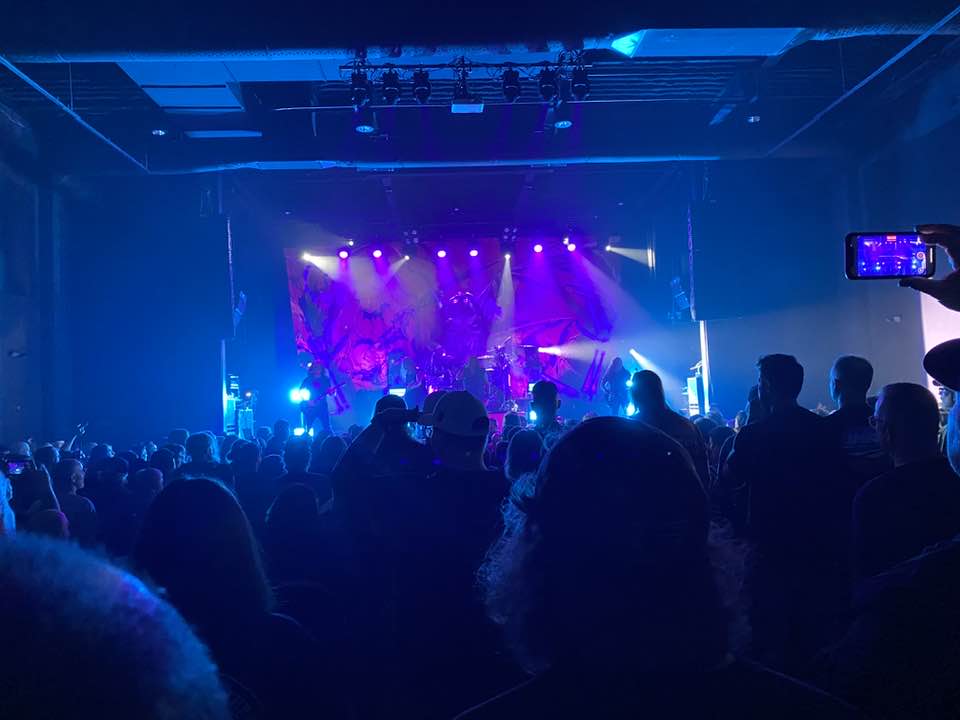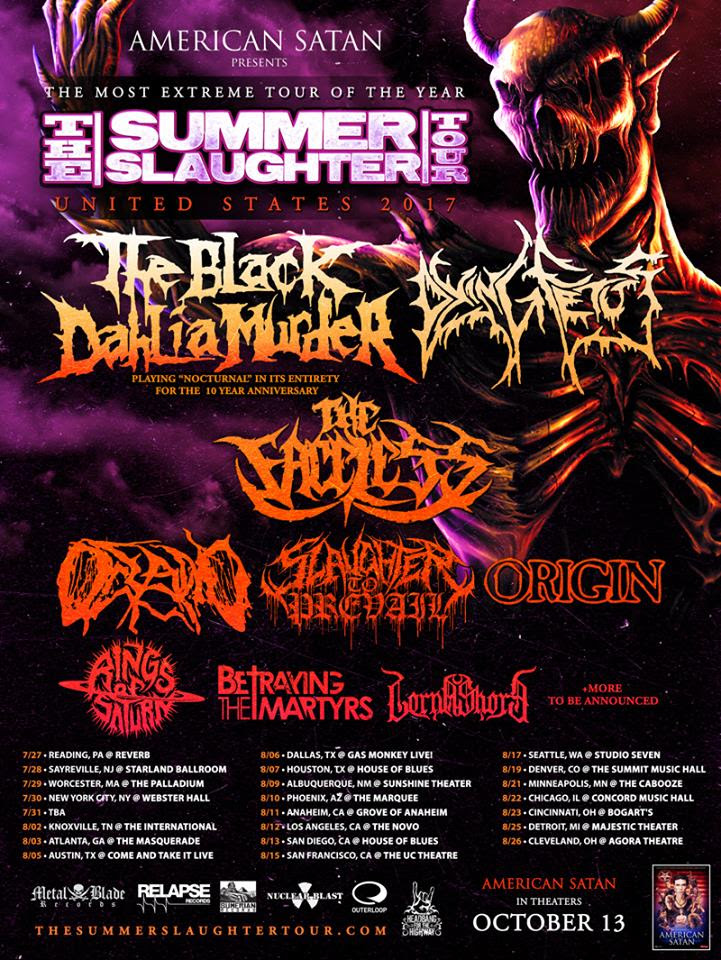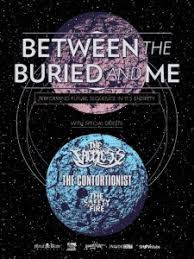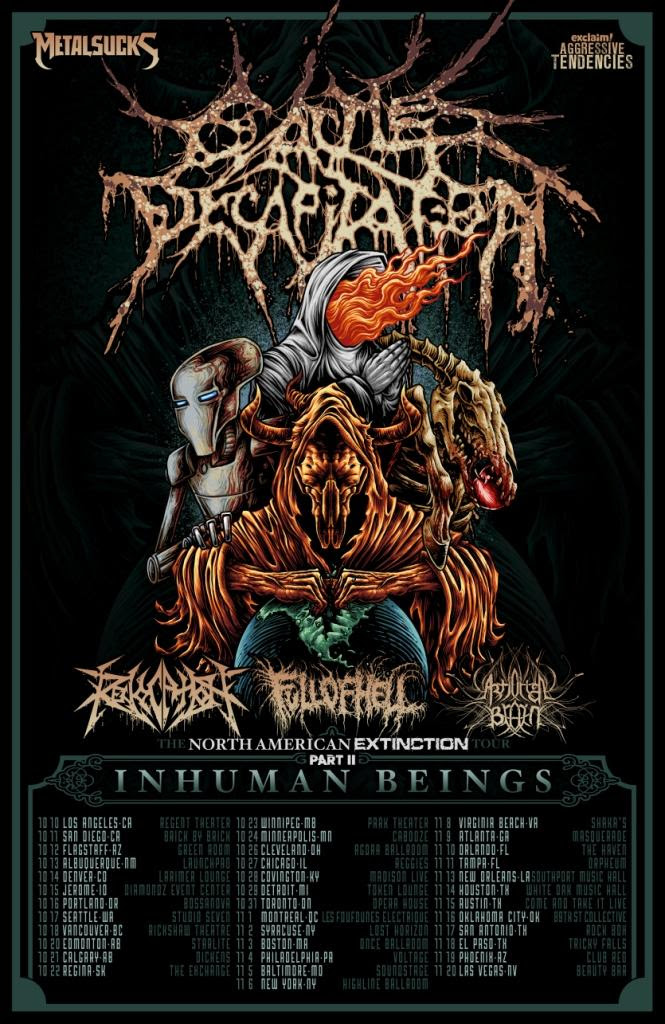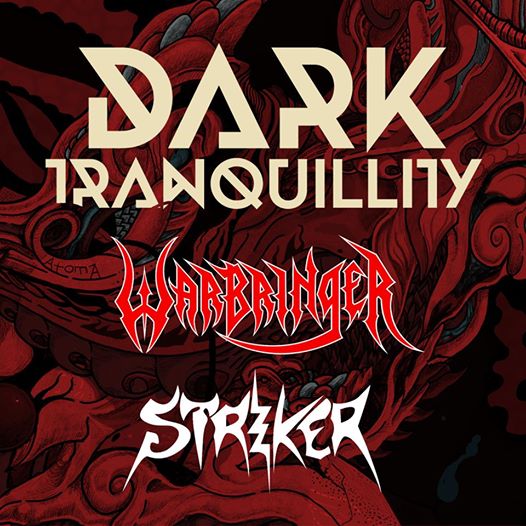"Something that needed to be done in order to keep the band intact" - Sonata Artica
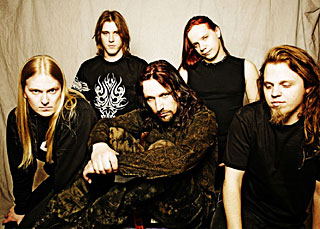 "This is…. Something that needed to be done in order to keep the band intact and keep on doing this, because we didn't want to lose Sonata Arctica." Barring initial pleasantries, these words served to introduce Tony Kakko to the conversation. Considering how successful Sonata Arctica has been in recent years and how vibrant an image they have maintained, this concession was an unexpected one, especially as the first and primary topic of conversation. Yet, just barely through the introductions and pleasantries, Tony got right down to it. "At some point at the end of the last tour we were really…tired. And although we were all still having fun the whole band wasn't really there anymore. Like, during the show you can think of completely different things than what you were actually doing there. I could sing the words but be thinking of something completely different. And that is not good."
"This is…. Something that needed to be done in order to keep the band intact and keep on doing this, because we didn't want to lose Sonata Arctica." Barring initial pleasantries, these words served to introduce Tony Kakko to the conversation. Considering how successful Sonata Arctica has been in recent years and how vibrant an image they have maintained, this concession was an unexpected one, especially as the first and primary topic of conversation. Yet, just barely through the introductions and pleasantries, Tony got right down to it. "At some point at the end of the last tour we were really…tired. And although we were all still having fun the whole band wasn't really there anymore. Like, during the show you can think of completely different things than what you were actually doing there. I could sing the words but be thinking of something completely different. And that is not good." "Not good," could count as the understatement of his career. Including Sonata Arctica's days as Tricky Beans (and Tricky Means), Tony has been continually crafting this project for 10-plus years now, but from the sounds of our conversation it seemed as though they had nearly reached the breaking point, creatively, at the least, and potentially literally. Either would appear to be a rather unexpected turn of events for most fans to consider, but in looking back over the band's history and the era in which they came of age, their motivations for change become clear.
By the late 1990's, Scandinavia and Heavy Metal had become essentially synonymous, with archetypal styles being developed by both the black metal horde in Norway the death metal schools of Sweden. Many would even say that between those two countries alone the Norse realms challenged Germany and the UK as the most significant region in the entire history of metal.
Yet despite this, both Denmark and Finland were little more than footnotes, contributing inconsistently and without clearly established national styles. Since those years, Denmark has remained the perennial little brother of the Scandinavian scene, subsisting in large part on the reputation of its cousins. Finland, on the other hand, has been anything but little and today boasts a scene as robust and distinctive as any country's. At the rate that new young bands keep pouring out, the future is getting only brighter.
And perhaps no group is more symbolic of Finland's rise to the top than Sonata Arctica. Formed by Tony (as lead singer and then-keyboardist) in 1996, Sonata Arctica released their first album 'Ecliptica' (Century Media) in 1999 and quickly developed a fanbase of astonishing proportions. Four full-lengths and three Gold certificates later, Tony and company are rivaled in popularity only by the likes of Kamelot or Edguy in the field of power metal. As far as specifically Finnish competition goes, Sonata Arctica's long-time contemporaries Nightwish are currently lying low after a soap-opera style break with Tarja while Children of Bodom build a reputation on their cover of Britney Spears songs. With waning support from their running-mates and the looming precedent of Stratovarius to live up to, the high expectations for Sonata Arctica could have been suffocating. But, Tony deftly sidesteps both the pressure and the rock star pride, saying, "We were just having fun and taking every day as a new adventure, in a way. You just aren't thinking that way at the beginning of your career, that you are carrying the whole of Finland or you will get crushed."
That mindset has apparently paid off, as on April 25th Sonata Arctica will release their fifth LP, entitled 'Unia'. Judging by past success and the dedication of their fans, Sonata Arctica could have recorded 'Reckoning Night: Round II' and notched another Gold (if not platinum) certificate on their belt, yet from the first listen to the new record it is clear that Sonata are not playing it safe. 'Unia' is quite unlike anything the band has done before, ambitious and, at the risk of sounding clichéd, unprecedented.
Tony had another term for it. He calls it, "brain food, soul food," and adds that, "'Unia' is "different from what we've done so far….More artsy…more theatrical, more progressive, more full, warm. In my opinion it's our best album." He hastily tacks on the caveat that he knows it's typical to say so, but sounded genuinely convinced and earnest.
However, this is not to say that 'Unia' is a complete break from the old ways, so fans of their earlier albums can relax. Sonata Arctica is still highly recognizable, with Henrik's keyboards racing along in tandem with Jani's solos, Tony's vocals as emotive as ever, with lyrical themes carrying over from previous albums, including the reappearance of wolves, Sonata Arctica's "totem animal", on the song 'It Won't Fade' in particular. Despite his forays into new territory, Tony says, "There's got to be a wolf song on every album; it's something that makes me feel safe, at home, that I have at least one theme there ready even before I start working on an album there's something that I know I will do." Fans will also be interested to hear 'Caleb', which finally gives a name to the twisted antagonist in their ongoing saga that includes such tracks as 'Don't Say A Word' from 'Reckoning Night' and logged playing time on 'Silence' as well.
To emphasize this point of continuation, when asked about the direction of the band Tony clearly stated that Sonata Arctica was not going anywhere and that 'Unia' was not the beginning of a new project. "We are still Sonata Arctica and when you listen to the album you can find Sonata Arctica from there, absolutely." To him, 'Unia' is, "maybe just a step aside" from the band's old path of progress and one a long time coming at that.
Tony concedes that he could have written another album like those in the past—"Hey, let's everybody sing along!", as he characterized them—but in the end had to answer to himself and the call of his own ambition. "I want to do something different, in a way, so I won't regret it when I'm older."
Musically, the most obvious representative of that ambition on 'Unia' is the use of the bouzouki, a curious, long-necked Greek lute. Tony explains the situation: "I knew this guy who has all these weird kind of string instruments like guitars…some I can't even pronounce correctly. I asked him to join the recording and he took a couple days off from other things, and he came and recorded his parts. I basically gave him a free hand to do whatever he wanted, to give the album some kind of original, new, fresh perspective, and I think it worked out really well." One might say that adding new instruments does not necessarily make a progressive album, and this is true, but the bouzouki (pronounced 'boo-ZOO-ki') is significant less for its explicitly audible impact and more for what it represents for Sonata Arctica. That is, a willingness to explore new realms and challenge themselves like real artists and not just as a rock 'n' roll band.
It is interesting to note that all this creative freedom did not just spontaneously appear, which Tony himself freely acknowledges. In fact, the spark that brought Tony out of his funk came from the most unlikely of places: Idol Star, the Finnish spin-off of American Idol. While hard rock fans in the States get antsy over 'bad boy' Chris Daughtry and as the rest of the nation hangs on 2007's flash-in-the-pan Sanjaya, over in Finland the Idol Star program has it right. Contestants like Agnes Pihlava, influenced by Whitesnake and The Scorpions along with Sonata Arctica, sing metal songs, in this particular instance the ballad 'Tallulah' from Sonata Arctica's 'Silence' album. Agnes's recording of the song became quite a hit in Finland, prompting some high-profile press for the band as well as the TV show. As thanks, Tony was asked to write a song or two for her album, and strangely enough, it was during that writing session for another that the epiphany for his own band finally struck. He recalls with a laugh, "The same night that I got this request I wrote a song that was too good to be on this Idol Star album, because that song was 'Paid in Full'." Nothing against Ms. Pihlava, of course—some things are just meant to be. "This project gave me an idea that it was really refreshing to write a song for someone other than Sonata Arctica, and I kind of taught myself to think outside the box, in a way." "I can't think of anytime I have been this excited for an album ever since 'Silence' came out."
In the end, despite all his insight and commentary on the changing face of Sonata Arctica, Tony turned to the words of another to sum it all up. The crux of 'Unia' and the new Sonata Arctica, as keyboardist Henrik put it, is simply that, "we are not yet too old to reinvent ourselves." And although there will always be a few stubborn fans who wax nostalgic for the old days, many more will welcome this new era with open arms. Indeed, it would be difficult not too, considering the alternatives. One can't precisely say just what Tony meant when he said he "didn't want to lose Sonata Arctica,", either figuratively in spirit or literally through disbanding, but luckily the band's fans will be spared that eventuality. Yet, even if the choice had been forced—between Sonata Arctica's current chosen path versus the threat of disbanding down the other—the progress of 'Unia' and the potential it still hints at would make that choice an easy one.
Read More News
Tags:
Sam Rahn May 18, 2007

